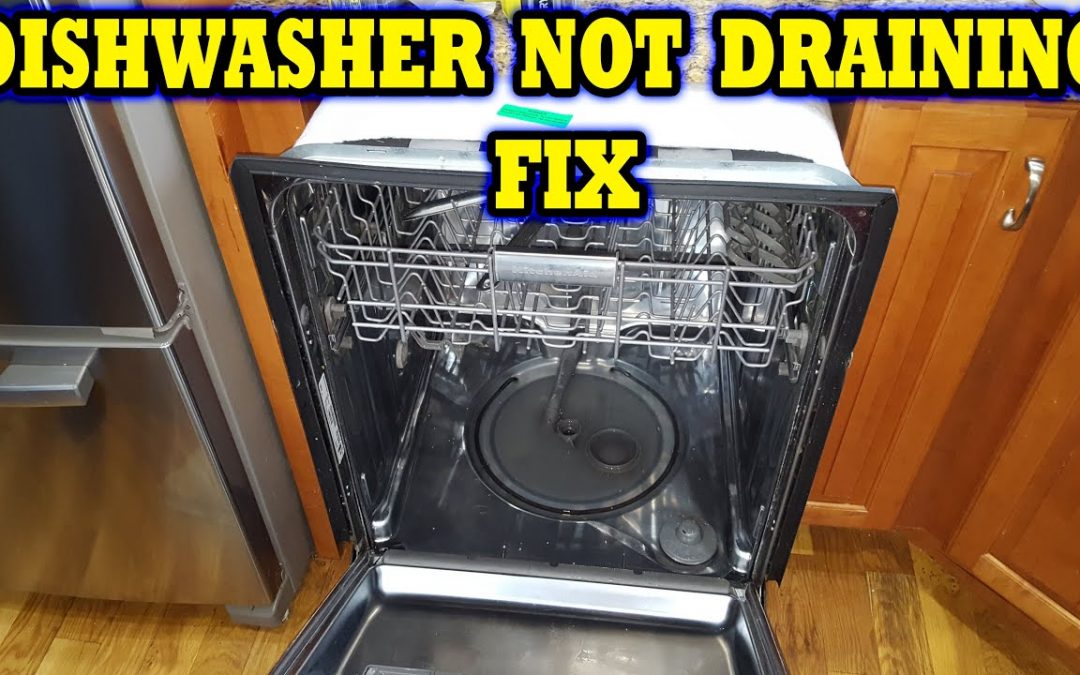A clogged dishwasher can be a major inconvenience, affecting its cleaning efficiency and potentially leading to water backing up and spilling over. The usual culprits behind these clogs are food particles, grease, and soap scum buildup, which can block the filter, spray arms, and drain. Thankfully, unclogging a dishwasher is a task most homeowners can manage without professional help. This guide will show you how to diagnose and fix common clogs, ensuring your dishwasher runs smoothly again.
By following these straightforward steps, you can prevent minor issues from escalating into bigger problems. Let’s dive into the process of keeping your dishwasher in top condition, enhancing its longevity and performance.
Quick Summary: To unclog a dishwasher, start by cleaning the filter and spray arms. Next, use baking soda and vinegar to clear the drain. For persistent clogs, a professional drain cleaning service might be necessary.
Symptoms of a clogged dishwasher
If you are hearing gurgling sounds coming from your sink or dishwasher, this may be a sign that your drain line is clogged or you have a slow-draining dishwasher. Similarly, water pooling in the sink can be a sign that the drain is slow draining. When you hear gurgling noises or see water pooling, use this guide to unclog a dishwasher or at least diagnose the problem before calling a Dayton plumber if it won’t clear. Your dishwasher is connected to the drain system of your kitchen sink, so a clog here can cause backflow.
Cleaning the Filter and Spray Arms
The first step in unclogging your dishwasher is to check and clean the filter and spray arms. Over time, these components can become clogged with food particles and debris, reducing water flow and cleaning efficiency. Most dishwashers have removable filters and spray arms that can be taken out and rinsed under running water. Use a soft brush to remove any stuck-on debris.
Regular cleaning of these parts can prevent clogs and ensure your dishwasher operates effectively, providing thoroughly clean dishes every cycle.
Clearing the Drain with Baking Soda and Vinegar
If cleaning the filter and spray arms doesn’t solve the problem, the next step is to unclog the dishwasher drain. A natural and safe method is to use baking soda and vinegar. Pour one cup of baking soda into the dishwasher drain, followed by one cup of white vinegar. The chemical reaction can help dissolve and dislodge clogs.
Allow the mixture to sit for 15-20 minutes, then run a hot water cycle to flush out the debris. This method is not only effective but also environmentally friendly, avoiding the need for harsh chemicals.
Checking and Cleaning the Drain Hose
A blocked drain hose is another common cause of dishwasher clogs. Disconnect the hose from the dishwasher and sink to inspect it for kinks or blockages. Running water through the hose or using a plumber’s snake can help remove any obstructions.
Ensure the hose is properly positioned without any sharp bends or kinks when reconnecting it. This will facilitate smooth water flow and prevent future clogs.
Using a Plunger or Plumber’s Snake
For more stubborn clogs that can’t be cleared with baking soda and vinegar, using a plunger or a plumber’s snake might be necessary. If the dishwasher shares a drain with your sink, plunging the sink can sometimes clear both clogs simultaneously. A plumber’s snake can also be used to directly dislodge debris within the dishwasher drain or the connecting hose.
These tools are effective for deeper clogs that cannot be resolved through simple cleaning and flushing methods.
When to Call in Professional Help
If you’ve tried all the above methods and your dishwasher is still not draining properly, it might be time to seek professional assistance. A drainage plumber can provide a thorough diagnosis and resolve complex clogs with specialized tools and techniques.
Professional intervention can ensure your dishwasher is repaired correctly, avoiding potential damage and extending its lifespan.
Preventive Maintenance
To avoid future clogs, practice regular maintenance such as:
- Rinsing dishes before loading them into the dishwasher to remove large food particles.
- Regularly cleaning the filter, spray arms, and drain area.
- Running a dishwasher cleaner through a cycle periodically to remove grease and soap buildup.
These simple habits can keep your dishwasher running efficiently, preventing clogs and maintaining optimal performance.
In conclusion, unclogging a dishwasher can often be accomplished with a few basic steps and regular maintenance. From cleaning the filter and using natural cleaning solutions to seeking professional help for more stubborn issues, this guide has covered essential techniques to ensure your dishwasher functions properly. If you encounter persistent problems, consider contacting a plumber in Trotwood, Riverside, Centerville, or Miamisburg for expert drain cleaning services. Keep your dishwasher in peak condition with the right care and professional support when needed.

